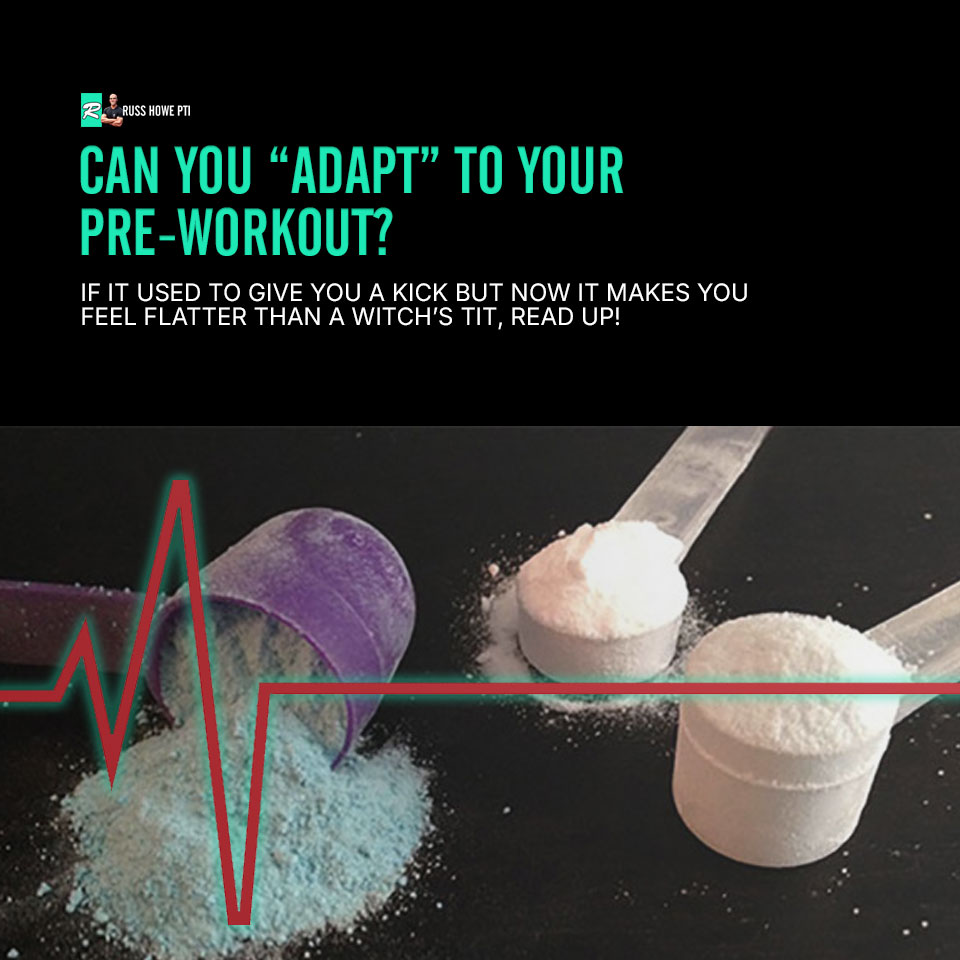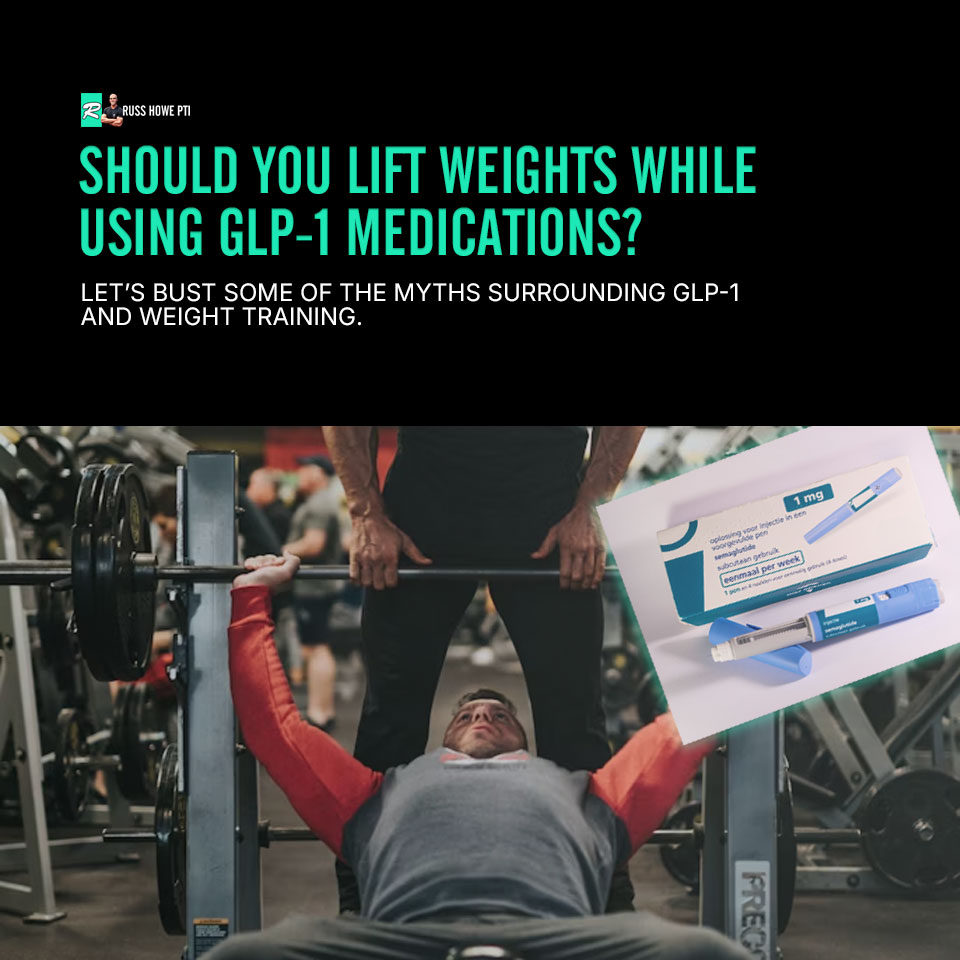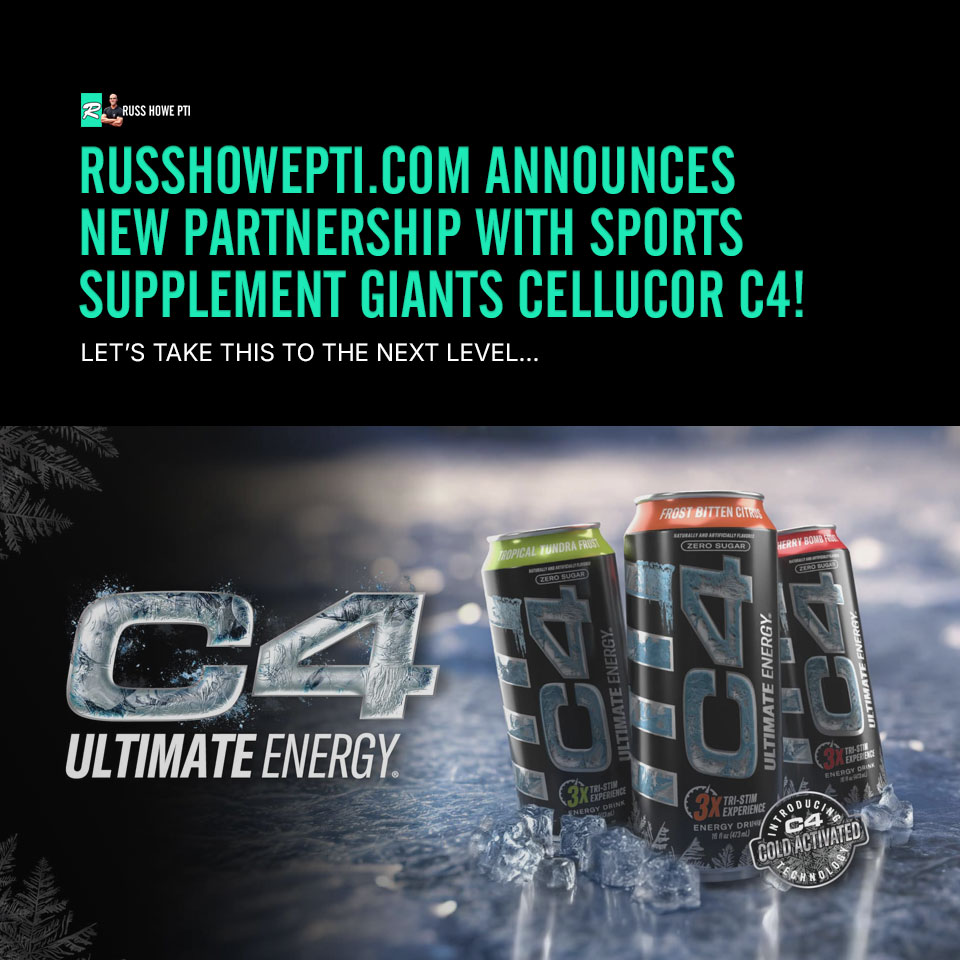Your pre-workout used to provide a massive kick but now… nothing?
You’re not alone, buddy.
My pre-workout has “stopped working” on numerous occasions, and I’ve met countless others on the gym floor who have experienced the same pain of watching their once-legendary pre leave them feeling flatter than a witch’s tit.
The good news is that this is perfetly normal – in fact it’s always caused by one of the 2 things shown below:

Yes, Adaptation Can Occur Over Time
Most pre-workouts are built around caffeine.
Your tolerance for caffeine will grow over time, so while a pre-workout which contains 150mg caffeine might clap your cheeks the first few times you use it, you’ll need a larger dose to acheive the same kind of impact after prolonged usage.
This is where people start double-scooping and triple-scooping, and shit just gets downright dangerous, so let’s take a look at the science on this.
For athletic performance benefits, research shows us that 200-400mg caffeine is ideal for unlocking all of the benefits it offers in terms of mental focus, increased calorie burne, greater power output.
With this in mind, one way to ensure you’re always “feeling it” is to begin near the bottom end of this scale and gradually increase the caffeine each time you hit a plateau.
NOTE: Research indicates there are no further benefits beyond 400mg, so don’t go any higher than this. Monstrous doses of caffeine can be bad for your heart. If you’re experiencing caffeine tolerance issues and you’re already near the top end of the scale, I recommend taking a different approach and switching to a stim-free pre-workout for a couple of months to reduce your body’s tolerance.
The other pre-workout ingredient we need to discuss is beta-alanine.
This is responsible for the tingly, skin-crawling sensation (parasthesia) which you’ll feel during the first few weeks of usage.
The gradual disappearance of this feeling often causes trainees to WRONGLY think the ingredient is no longer working, or that they need more of it, but that’s not the case.
This tingly effect is nothing more than a superficial side-effect of beta-alanine supplementation. The real training benefits (significant improvements to endurance and muscle recovery times) actually require consistent long-term usage in order to be unlocked, so as long as you get your daily dose of 3.2g beta-alanine it doesn’t really matter if you feel the tingles or not!

Hey, Perhaps Your Current Choice Just Sucks
There are lots of crappy pre-workouts out there which under-dose key ingredients.
Follow these easy guidelines to make sure yours doesn’t suck:
- Caffeine: 200-400mg
You’re looking for a dose between 200-400mg for maximum results. (8)
- Beta-alanine: 3.2g
This ingredient helps shuttle away waste products (metabolites) from your muscle cells, resulting in superior endurance. A clinical dose is 3.2 grams, which can be consumed all at once or in multiple smaller doses throughout the day. (3, 4)
- Citrulline Malate: 6-10g
The real powerhouse of your pre-workout, CitMal offers everything from increased blood flow, to faster recovery, and even a boost to the number of reps you can expect to hit in each set. A clinical dose is 6g. but you can go as high as 10g if you really want to push it to the max. (1, 2)
- Betaine: 2.5g
A somewhat under-utilized ingredient, betaine is great for improving explosive strength output and speeding up muscle recovery speed. A clinical dose is 2.5g, and this can be consumed all at once or in multiple smaller doses throughout the day. (5, 6, 7)

My Handy Go-To List
If you’d like to try something new, here’s a handy list of high quality pre-workout supplements:

Further Reading:
If you enjoyed this blog, then you’ll probably also like reading these.
>> Common Pre-Workout Red Flags
>> Creatine: Your Best Pal For Muscle Growth!
>> Russ’ Guide To Supplements
References:
- Alvares T. S., et al. Acute l-arginine supplementation increases muscle blood volume but not strength performance. Appl Physiol Nutr Metab (2012).
- Pérez-Guisado J., et al. Citrulline malate enhances athletic anaerobic performance and relieves muscle soreness. J Strength Cond Res (2010).
- Hoffman J., et al. Beta-alanine and the hormonal response to exercise. Int J Sports Med (2008).
- Donovan T., et al. Beta-alanine improves punch force and frequency in amateur boxers during a simulated contest. Int J Sport Nutr Exerc Metab (2012).
- Hoffman J. R., et al. Effect of betaine supplementation on power performance and fatigue. J Int Soc Sports Nutr (2009).
- Lee E. C., et al. Ergogenic effects of betaine supplementation on strength and power performance. J Int Soc Sports Nutr (2010).
- Holewa J., et al. Effects of betaine on body composition, performance, and homocysteine thiolactone. Department of Kinesiology, Recreation, and Sport Studies, Coastal Carolina University (2013).
- McCormack W. P., et al. Caffeine, Energy Drinks, and Strength-Power Performance. Str Con J (2012).







Leave a Reply to Anthony Cancel reply